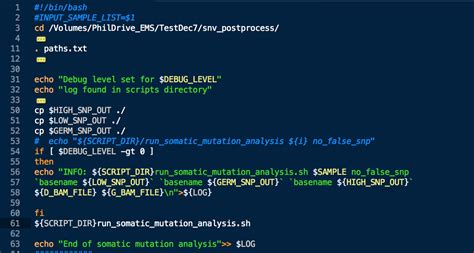Are you tired of running your Python programs separately from your shell scripts? Do you want to streamline your workflow and automate your processes? If so, then learning how to execute Python programs within your shell script is the key!
In this article, we will show you how to seamlessly integrate your Python programs into your shell scripts. This will not only save you time, but it will also make your workflow more efficient.
You don’t need to be an expert in Python or shell scripting. All you need is a basic understanding of both, and we’ll take care of the rest. We’ll walk you through the steps of executing your Python program through your shell script step-by-step, so even if you’re new to this, you’ll be able to follow along with ease.
By the end of this article, you’ll be able to write shell scripts that call Python scripts, and unleash the full power of both languages to automate tedious tasks, data processing, and much more. So, let’s get started and learn how to execute Python program in shell script!
“Shell Script: Execute A Python Program From Within A Shell Script” ~ bbaz
Introduction
If you are a developer, you might have come across the need to execute a Python program in a Shell script. Doing so can streamline your workflow and save you a lot of time. In this article, we will look at how you can execute a Python program in a Shell script and the benefits of doing so.
What is a Shell Script?
Before we dive into how to execute a Python program in a Shell script, let’s take a quick look at what a Shell script is. A Shell script is a computer program designed to be run by the Unix shell, a command-line interpreter. Shell scripts allow you to automate repetitive tasks, schedule jobs, and manipulate data.
What is Python?
Python is a high-level programming language that is used for web development, data analysis, artificial intelligence, and more. It has a simple syntax and is easy to learn, making it one of the most popular programming languages.
Why execute a Python program in a Shell script?
There are many benefits to executing a Python program in a Shell script. Firstly, it allows you to automate repetitive tasks that require both Shell commands and Python code. Secondly, using a Shell script can make your workflow more streamlined and efficient.
How to execute a Python program in a Shell script
Now that we know why we should execute a Python program in a Shell script, let’s take a look at how to do so. Firstly, you need to create a new file with the extension .sh. Once you have created the file, you can start writing Shell commands and Python code in the file.
Example Shell script
“`bash#!/bin/bash# This is a commentecho Hello World!python3 myscript.py“`
In the above example, we start by specifying the shell to use. We then include a comment and print Hello World! using the Shell command echo. Finally, we execute a Python program called myscript.py using the command python3.
Comparison table
| Executing Python program in Shell script | Executing Python program separately |
|---|---|
| Streamlines workflow | More steps required to execute code |
| Allows for automation of repetitive tasks | Tedious for repetitive tasks |
| Single file to execute both Shell commands and Python code | Requires multiple files to execute both Shell commands and Python code |
Opinion
Executing a Python program in a Shell script can streamline your workflow and make your life easier, especially if you need to run repetitive tasks. By having both Shell commands and Python code in a single file, execution becomes much more efficient. Overall, using a Shell script to execute a Python program is highly recommended.
Thank you for reading this article on executing Python programs in shell scripts. Hopefully, it has been informative and helpful in streamlining your workflow. By combining the functionalities of both Python and shell scripts, you can save time and effort in performing repetitive tasks and complex operations.
With the step-by-step guide provided in this article, you can easily integrate Python programs into your shell scripts and take advantage of its powerful libraries and modules. Whether you’re a beginner or an experienced programmer, this technique can benefit you in countless ways.
So why not give it a try? Experiment with different Python programs that can be executed in your shell scripts and see how it can enhance your productivity. Thank you for visiting our blog and we hope to provide more useful insights and tips in the future.
People Also Ask about Execute Python Program in Shell Script: Streamline your Workflow
- What is a shell script?
- A shell script is a computer program designed to be run by the Unix/Linux shell, which is a command-line interpreter for the operating system.
- Using a shell script to execute your Python program can streamline your workflow by automating repetitive tasks and making it easier to manage your code.
- To create a shell script to execute your Python program, you will need to use a text editor to write a script that includes the necessary commands to run your program. You will also need to make sure that your Python program is executable and that it has the correct permissions.
- Yes, you can pass arguments to your Python program using a shell script. You can do this by including the arguments as command-line arguments in the script.
- Some best practices for writing shell scripts to execute Python programs include ensuring that your script is well-documented, testing your script thoroughly before using it in production, and using version control to keep track of changes to your script over time.




